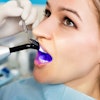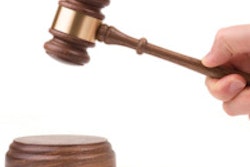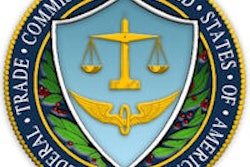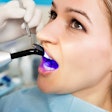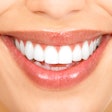
A federal appeals court has upheld a Connecticut law restricting nondentists from shining light-emitting diode (LED) teeth-whitening lights on customers' teeth. The judges ruled that economic protectionism for favored interest groups is a legitimate use of government power.
The 2nd U.S. Circuit Court of Appeals on July 17 upheld a policy of the Connecticut State Dental Commission that threatens teeth-whitening entrepreneurs with fines and jail time if they position low-powered LED teeth-whitening lights in front of their customers' mouths.
In June 2011, the Connecticut dental commission issued a ruling that only licensed dentists were permitted to provide certain teeth-whitening procedures. The Connecticut Department of Public Health subsequently sent the teeth-whitening business Sensational Smiles a letter telling it to stop or face legal action.
Sensational Smiles' owners then sued in federal district court, particularly focusing on the rule that only a licensed dentist could shine a LED light at the mouth of consumers during a teeth-whitening procedure.
Equal protection versus economic protectionism
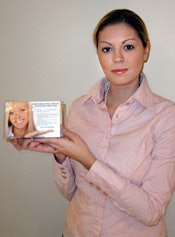 Lisa Martinez closed her Connecticut White Smile business after being threatened with fines and jail time by the state health officials for selling teeth-whitening products at a salon. Image courtesy of the Institute for Justice.
Lisa Martinez closed her Connecticut White Smile business after being threatened with fines and jail time by the state health officials for selling teeth-whitening products at a salon. Image courtesy of the Institute for Justice.Sensational Smiles asserted that the rule violates equal protection rights guaranteed in the U.S Constitution. But the appellate court upheld a lower district court's ruling, finding that economic protectionism is a legitimate basis for government regulation.
"Much of what states do is to favor certain groups over others on economic grounds," the judges wrote. "We call this politics. Whether the results are wise or terrible is not for us to say, but favoritism of this sort is certainly rational in the constitutional sense."
Judge Christopher Droney concurred with the outcome but disagreed that economic protectionism is a legitimate basis for regulation.
"No matter how broadly we are to define the class of legitimate state interests, I cannot conclude that protectionism for its own sake is among them," Droney wrote.
Attorneys for the Institute for Justice (IJ), which argued the case for Sensational Smiles, noted that the LED lights are no more powerful than household flashlights. They also pointed out that it is legal to make the lights available for customers to position in front of their own mouths.
"Today's ruling disregards what should be obvious to anyone: It is unconstitutional to require someone to have eight years of higher education before they can point a flashlight at someone's teeth," IJ attorney Paul Sherman told DrBicuspid.com. "Connecticut's policy had nothing to do with public health and safety and only serves to make life difficult for entrepreneurs who wanted to earn an honest living offering teeth-whitening services."
“It is unconstitutional to require someone to have eight years of higher education before they can point a flashlight at someone's teeth.”
Another IJ attorney who worked on the case, Robert McNamara, told DrBicuspid.com: "Today's opinion deepens a longstanding disagreement among the federal courts over a basic question: whether the government can do something bad to you simply because it likes someone else better. The 2nd Circuit's decision that sheer favoritism is enough to justify regulation is wrong, both legally and morally, and we expect the U.S. Supreme Court to reject this reasoning when it has the chance."
McNamara explained that although the ruling does not totally prohibit teeth-whitening businesses, they may be subject to up to $25,000 in fines or five years in jail per customer if one of their employees provides their customers with even trivial assistance during the teeth-whitening process.
At least 30 states have taken action against nondentist teeth whiteners, according to an IJ report, and the public advocacy group is currently challenging similar prohibitions in Alabama and Georgia.
Prior court rulings
In June, the Alabama Supreme Court upheld a state law restricting nondentists from offering teeth-whitening products and services. The ruling affirmed an earlier decision that such services are reasonably related to public health and safety.
However, the U.S. Supreme Court ruled in February that the North Carolina Dental Board is anticompetitive, because dentists compose the majority of the panel.

